Senators and Congressmen have introduced both in the House and the Senate several bills and resolutions that propose to designate Mexican drug cartels “foreign terror organizations”. Speaking to UWI, Mexican authors close to the government had evaluated such initiatives as preparing the ground for “cross-border military interventions”.
Some bills indeed establish a sanctions regime against foreign governments, should they be “found facilitating transnational criminal organizations”.
The bill drafts name the cartels explicitly. The Sinaloa cartel appears repeatedly. This cartel, argues Pedro Miguel in the second part of our interview, has been actively supported by the United States themselves.
The Mexican journalist, advisor to governing Morena’s National Institute for Political Education, moreover describes how and why the United States itself is a “narco-state”.
The United States delivers weapons to the Sinaloa Cartel – and its banking system launders the cartel’s money
You just mentioned that despite all economic and political cooperation, the United States constitutes the main national threat to Mexico, because it is a ‘narco-state’. What makes you think that the U.S. is a “narco-state”?
In a short summary: The United States is the main market for drugs in the world. It is the main money-laundering site in the world. And it is the world’s main provider of arms and services to both drug dealers and the security forces ordered to fight these.
They have a narco-economy. The European drug observation institution calculated the influx of 500 billion US dollars to the US economy from drug trade – almost the same amount as their defense budget.
In the 1980s, it was the CIA that determined the routes of cocaine trafficking within Mexico, when they needed resources to finance the counterrevolutionaries in Nicaragua.
It was the United States that started the production of heroin in Mexico. This happened during World War II, when they needed morphine for their wounded soldiers.
The United States provided attack weapons to the Sinaloa Cartel. They claimed to follow the trade and route of weapons. But with these US-supplied weapons, thousands of attacks and assassinations have been committed.
The Drug Enforcement Agency (DEA) was laundering money for the Sinaloa Cartel. This is well documented. They even dared to defend this act, by saying it was an operation to infiltrate the cartel. But they did launder money of the Sinaloa Cartel in the US banking system!
The DEA, the CIA, the ATF (US federal institution ‘Alcohol Tobacco Firearms’, UWI)… Not to forget the Pentagon, which is the greatest provider of drugs in Southeast Asia.
Take for instance Afghanistan: During the first Taliban government, poppy production dropped to nearly zero. Then came the US invasion, and within just one year, 200.00 hectares were cultivated for opium. The so-called opium war in China etc.
You need more proof? The pharmaceutics companies in the U.S. are responsible for the greatest epidemic of opioid addiction. They distribute medicine that is based on opium or simulates its affects and literally burns out the brains of thousands of US citizens.
Hence, wherever you turn your eyes to, you see the U.S. And they make great use of drug trafficking in international politics:
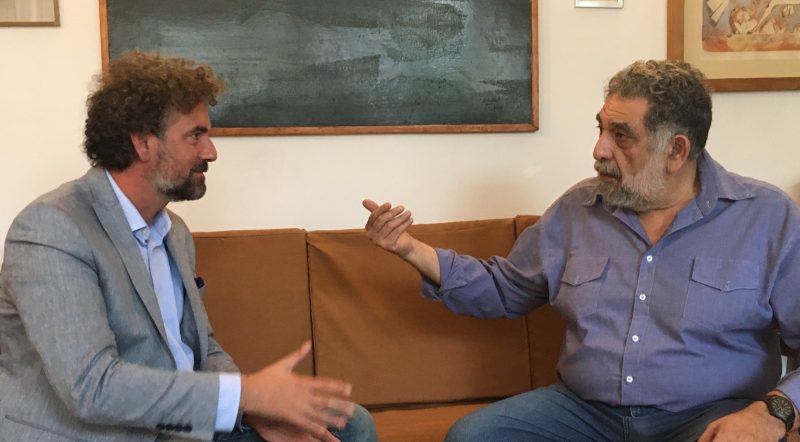
When they invented the so-called war un drugs during the Nixon era, this converted into a great strategy to suppress politically, militarily and economically entire Latin American countries.
During those times, markets are opened for the U.S. to selling weapons, security services and intelligence.
Then you have the case of Walchovia Bank, which was later acquired by Western Union. The Walchovia Bank laundered 3 billion US dollars for the Sinaloa Cartel. The US banking institution SEC discovered that. They questioned the bank, and it admitted to have done so. And then, the SEC imposed a penalty on the bank: 20 million dollars!
The bank had profited at a rate of 10%, that is, 300 million US dollars from the laundering. The fine was 20 million! This is not a conspiracy theory, all this information is open to public and well documented.
The war on drugs is certainly a hypocritical, conservative moral discourse.
In summary: If you take together the financial, military-industrial and policy institutions, you come to the conclusion that the United States is a narco-state.
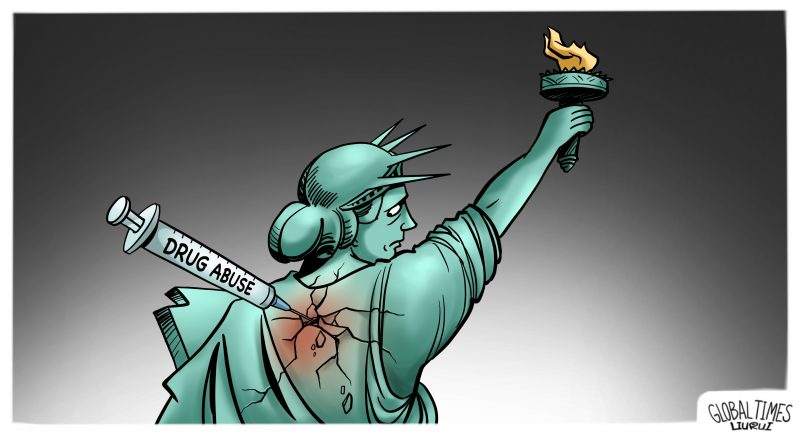
What does that mean for Mexico? What is the solution?
To disconnect radically from the so-called war on drugs, which has turned a problem of public health into one of public security.
The state needs to denounce the idea to interfere in criminal terms in what people put into their bodies. This is a medical issue. There is the need for a strict regulation for the production and distribution of drugs – with the goal of stopping the trade of it. You cannot make business on the health of people. This is immoral. A state institution needs to organize and supervise the distribution to addicts.
And then there’s the problem of local armed groups. You have to tackle here the roots of the problem: Poverty and the need for basic social services.
Drug trafficking is a neoliberal business. Neoliberalism has converted delinquency into a sector for the economy. It connected narco with the banking sector and even the automobiles industry.
Neoliberalism and drug trafficking
The automobile industry?
Of course! What do you think who is the biggest client for suburbans, pickups and 4-wheel vehicles? Go to the car distributors in the north of Mexico. You will find demands of the kind ‘I want 20 pickups and will pay in cash’.
Neoliberalism has created the industrial reserve force for drug trafficking: Between 1986 and 2006, 8 million Mexican peasants were forced to emigration from their lands, losing home and employment.
This happened in consequence of politics of market opening and abandonment of rural areas by the government. These peasants had three choices: emigrate illegally to the U.S., emigrate to the big cities and survive by begging on the streets or selling some stuff. Or to integrate themselves into the sector of delinquency. No other choice left!
Besides that, you have corrupt governments that have transferred the public security of entire regions to narco gangs.
The Familia Michoacana is a good example: They ruled their region in judicial terms, were registered as tax payers and provided social policy and service. As the Sinaloa Cartel, they were constructing even schools!
State functions were transferred to cartels?
Not only state functions. The privatization carried this to an extreme. If you give up customs, airports, highways, why not also privatize public security? Cartels are also businesspeople, they said.
The cynicism reached its highest point when Felipe Calderon’s (President of Mexico 2006 – 2012) Minister for Agriculture stated that ‘drug trafficking is a model for correct business’.
The government dismissed him, but he was actually too stupid to articulate what they all thought. He also said ‘We have to learn from drug trafficking’.
The programs of support for rural areas during the Calderon presidency delivered money to the cartels. They were supposed to increase agricultural production, what they did was to increase the production of marijuana and poppy.
And United States imposed these governments on Mexico. Calderon himself was imposed by Washington. Wikleaks documents, we talked about these, show that the US ambassador personally intervened into the presidential transition from Fox to Calderon. He coordinated the entire process.
Next and final part: US-Mexican relations and the view on the Ukraine crisis







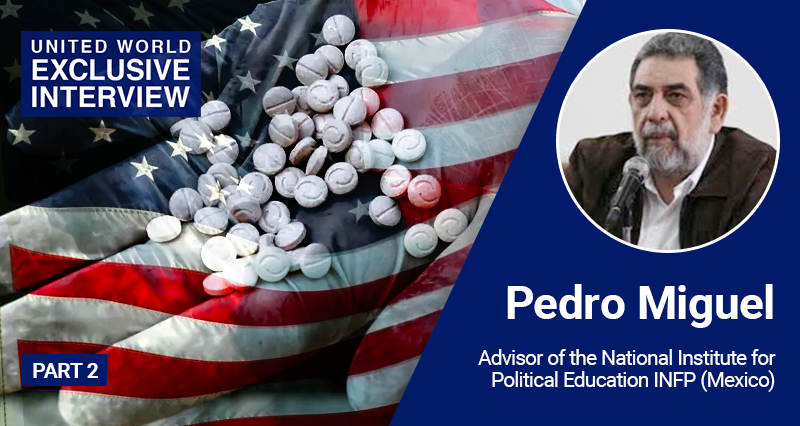
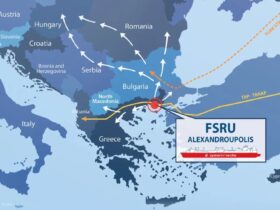

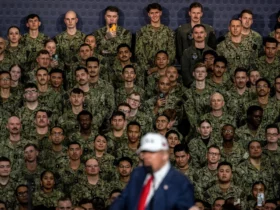
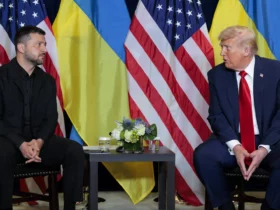
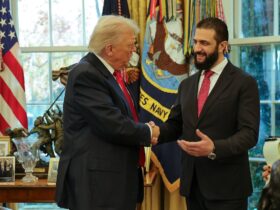

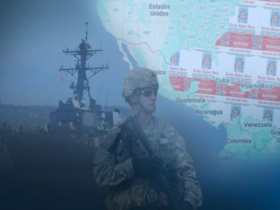


Leave a Reply